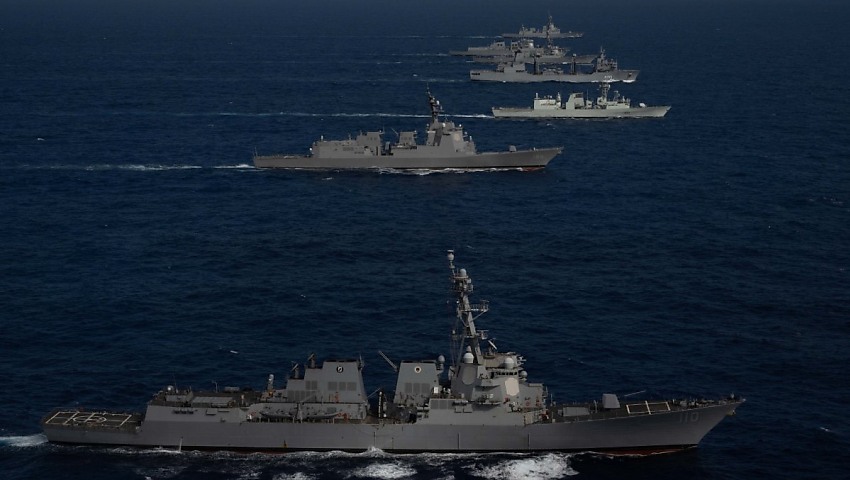A trilateral missile defence exercise has been conducted in the Pacific amid mounting tensions in the region.
The United States Navy, Japan Maritime Self-Defense Force, and Republic of Korea (ROK) Navy recently took part in Exercise Pacific Dragon — a missile warning and ballistic missile search and tracking exercise.
The activities were held off the coast of the Pacific Missile Range Facility (PMRF) in Hawaii from 8 August to 14 August.
Joint operations included the sharing of tactical data link information as part of a trilateral information sharing agreement.
The defence exercise formed part of broader commitments to strengthen collaboration and interoperability during the US-ROK-Japan Trilateral Ministerial Meeting in Singapore earlier this year.
This follows a number of ballistic missile tests launched from the Democratic People’s Republic of Korea (DPRK).
In May, the regime test fired three missiles, including one intercontinental ballistic missile (ICBM) just days after a Quad leaders’ meeting between US President Joe Biden, Indian Prime Minister Narendra Modi, Japanese Prime Minister Fumio Kishida, and Australian Prime Minister Anthony Albanese.
The three tests came in quick succession, with the first and second tests spaced 37 minutes apart, and a five-minute interval preceding the third test.
This was the second time Pyongyang fired an ICBM in 2022 in violation of UN sanctions, recently reaffirmed by the Security Council in resolution 2397 (2017).
The tests were strongly condemned by the international community, with the G7 issuing a formal statement.
Exercise Pacific Dragon was also conducted amid mounting tensions in the Taiwan Strait, particularly following US House Speaker Nancy Pelosi’s visit to Taipei.
The Chinese military responded to the visit by launching a major multi-domain exercise off the coast of Taiwan, launching ballistic missiles and actioning a naval blockade.
The latest reports suggest Beijing is set to ramp-up these activities in response to another upcoming visit to Taipei from a US delegation led by Senator Ed Markey.
Chinese Foreign Ministry spokesperson Wang Wenbin said the trip is a “blatant” violation of the One China policy.
“It also infringes on China’s sovereignty and territorial integrity and sends a seriously wrong signal to the ‘Taiwan independence’ separatist forces,” he added.
“…China will take resolute and strong measures to defend national sovereignty and territorial integrity.
“Associating themselves with the separatists in Taiwan and attempting to challenge the One China principle is a misjudgment and will get these small number of US politicians nowhere.”








